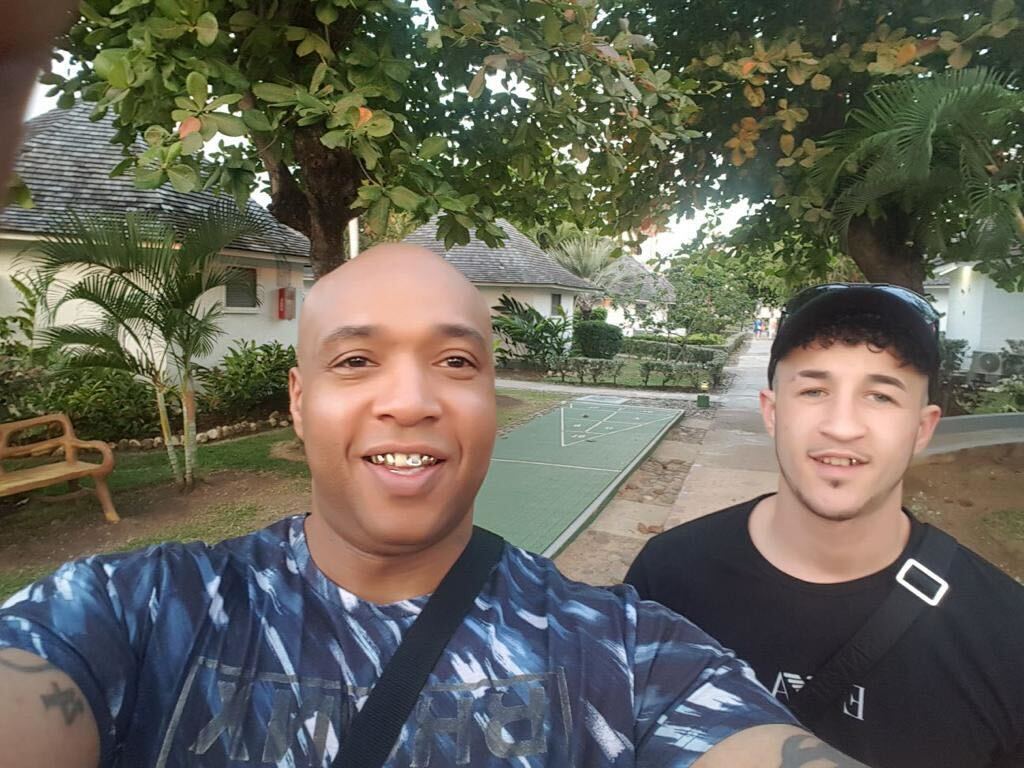
The family of a vulnerable mixed-race man who died after being restrained by police officers say they have “no faith” in an investigation into his death.
Kaine Fletcher, 26, died on July 3 after Nottinghamshire Police officers were called to his home while he was experiencing a mental health crisis.
The father-of-two was detained under the Mental Health Act and restrained by a number of officers after he became “uncooperative”. He died later the same morning at Queen’s Medical Centre in Nottingham.
The Independent Office for Police Conduct confirmed to The Independent that a probe would examine the “actions and decisions” of police, force used by officers during the detention and whether the man was treated differently because of his race.
But Mr Fletcher’s relatives said they fear a “lack of transparency” around the investigation. The family are particularly concerned that the IOPC failed to publicly announce Mr Fletcher’s death, or the investigation into it, eight months on.

His father Nathaniel Ameyaw told The Independent: “This has been very difficult to cope with. The pain feels never-ending.
“We’re still trying to come to terms with Kaine’s death. We have been treated inhumanely, as a family, with no insight. So, we can’t grieve.”
He added: “We feel that this is yet another case where the police’s conduct, or heavy-handedness, has contributed to or caused a young Black man’s death.”
The watchdog confirmed that it had received a mandatory referral from police after Mr Fletcher’s death, but did not release a statement about the probe at the time. The scope of the investigation was extended in January after a complaint from Mr Fletcher’s family, it added.
“We were initially told that a statement would be released but that hasn’t happened,” his father, 47, said. “My son was so well known in the community and it’s heartbreaking for us to have people coming up saying ‘we heard Kaine killed himself’, when that’s not true.
“I can only be left with the consideration that the IOPC want this matter to be kept behind closed doors - and they don't want the public to know about this whereas when things come out into the light, there’s more accountability.”

Mr Fletcher, who ran a mobile motor mechanics business, previously struggled with cocaine use and was diagnosed with a personality disorder in 2020, according to his family.
He was “extremely popular” with “the world at his feet”, his father said.
“My son was very well loved. Kaine was the centre of everything; he loved to dance, he was very gifted with his lyrical ability, liked to rap, and was very much into motorbikes and fashion.
“He was a person who people went to for advice and guidance because he was a good listener. He was the eldest son of six siblings and a hero to his children.”
Mr Fletcher is the fourth known Black or mixed-race man to die following UK police contact between June and September 2022.
Oladeji Omishore, 41, died in June 2022 after being tasered by Met Police officers. The Independent revealed that Godrick Osei, 35, died in July 2022 following contact with Devon and Cornwall Police. Chris Kaba, 24, died after being shot dead by Met Police firearms officers in September 2022.
Three of these four men, with the exception of Mr Kaba, were vulnerable. Mr Omishore’s family is taking the IOPC to the high court in a test case, accusing the watchdog of failing to properly investigate the officers involved.
Tony Murphy, from Bhatt Murphy Solicitors, said on behalf of Mr Fletcher’s family: “The death of a vulnerable mental health patient following police restraint will always be a matter engaging the public interest.
“The bereaved family left behind will always deserve specialist support. It is therefore difficult to understand why the IOPC has refused to notify the public of Kaine’s death and has failed to respond substantively to the family’s correspondence.”

Jodie Anderson from the charity Inquest, which is supporting the family, said the circumstances around Mr Fletcher’s death require “the greatest scrutiny”.
“If the IOPC is truly committed to ensuring public confidence and faith in the police complaints system, they should be alerting the public to any death following police restraint,” she said.
“That the family waited eight months without any public acknowledgement of Kaine’s death, before being forced to go to the press, is shocking and unacceptable. The family need answers and we urge the IOPC to facilitate, not obstruct that process.”
Officers had responded to a distressed call from Mr Fletcher the day before his death, on 2 July, when he was experiencing a crisis but did not detain him.
IOPC’s regional director Derrick Campbell told The Independent: “The investigation is looking at the actions and decision of police after they received a call from the man on 2 July and a further call of concern for his welfare early the following day. Following the second call officers attended and detained the man under Section 136 of the Mental Health Act.
“Evidence we have gathered shows that during this incident the man was restrained and then taken to hospital after he became unwell. Sadly his condition deteriorated there and he died at around 9am that day.
“We are also looking at the force used by officers during the detention, and whether the man was treated differently because of his race. We have been providing the family with regular updates on our investigation which is in its final stages.”
Addressing the alleged delay in making the probe public, Mr Campbell said the watchdog intended to issue a press release shortly after Mr Fletcher’s death but there were delays while they waited to see whether the family wanted to make representations about the investigation’s terms of reference.
Nottinghamshire Police declined to comment.







